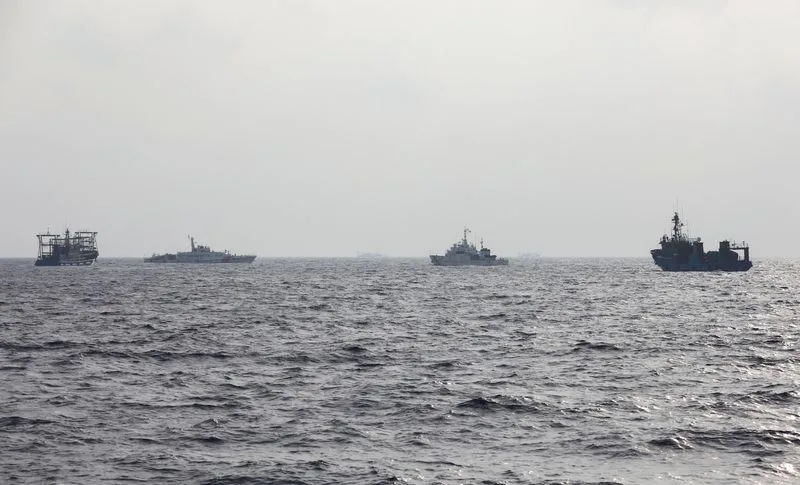China has accused the Philippines of escalating tensions in the disputed South China Sea and urged Manila to “immediately stop its provocative actions,” as a new round of confrontations between the two countries reignites fears of military escalation in the region.
According to a statement released by China’s Ministry of Foreign Affairs, the Philippines has been “illegally entering” waters claimed by Beijing and has carried out actions that “undermine China’s sovereignty and maritime rights.” The strongly worded warning came after Philippine vessels were reportedly spotted near the contested Second Thomas Shoal (known in China as Ren’ai Reef), where a long-standing territorial standoff has simmered for years.
“China once again urges the Philippines to immediately stop stirring up trouble, honor its commitments, and return to the right track of dialogue and consultation,” the statement said. Chinese officials also accused the U.S. of encouraging “provocative behavior” by Manila and interfering in regional affairs under the pretext of freedom of navigation.
In response, the Philippine Department of Foreign Affairs rejected Beijing’s claims, stating that the activities in question were lawful and conducted within the Philippines’ Exclusive Economic Zone (EEZ). Manila emphasized its sovereign rights under international law, particularly the 2016 ruling by the Permanent Court of Arbitration in The Hague, which invalidated China’s sweeping claims to most of the South China Sea.
“The Philippines will continue to act in accordance with international law and will not be intimidated by threats or coercion,” said a spokesperson for the Philippine government.
Tensions in the region have escalated over the past year, with increased Chinese coast guard and maritime militia activity near Philippine-occupied reefs, leading to multiple near-collisions, use of water cannons, and accusations of dangerous maneuvers. The Philippines has filed numerous diplomatic protests against what it calls “aggressive” and “illegal” behavior by Chinese forces.
The latest confrontation adds pressure on regional security dialogues, as both countries prepare for upcoming meetings of the ASEAN Regional Forum and East Asia Summit. Analysts say the dispute could dominate the agenda and strain already fragile diplomatic efforts.
The U.S. has reaffirmed its defense commitments to the Philippines under their Mutual Defense Treaty and recently conducted joint maritime patrols with the Philippine Navy in contested waters—a move that has drawn sharp criticism from Beijing.
China continues to claim nearly 90% of the South China Sea, despite competing claims from several Southeast Asian nations including the Philippines, Vietnam, Malaysia, and Brunei. The area is a critical maritime passage and is believed to be rich in oil, gas, and marine resources.
Regional observers warn that without de-escalation mechanisms and clear lines of communication, the risk of miscalculation or accidental conflict remains high.
“This tit-for-tat dynamic is dangerous,” said Dr. Jay Batongbacal, a maritime law expert based in Manila. “If diplomacy does not gain ground soon, we could see a serious crisis unfold in one of the world’s most strategically sensitive regions.”
For now, both sides remain locked in a war of words, even as their ships continue a tense standoff at sea.
Source: Yahoo News



